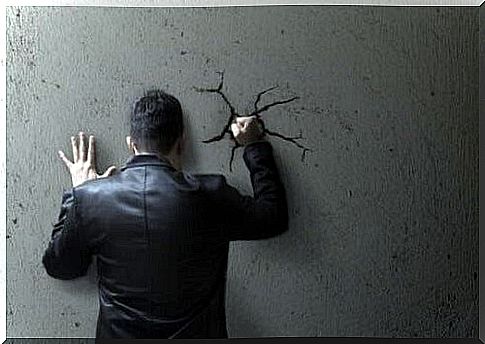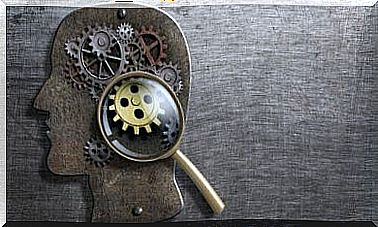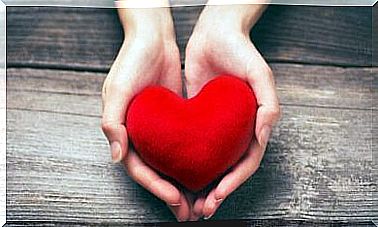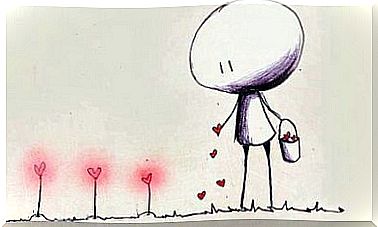Anger, That Old Acquaintance And An Old Friend Of Ours

Anger is that old friend, that old friend who is able to change us in seconds. So it’s not that easy to deal with.
Some people express their anger the moment they feel it. Others suppress it or hide it behind kind words. There are also those who transform it into a more pleasant emotion. Anger is a complex emotion that requires deep inner reflection and renewed exploration.
How many times have we raised our voices? How many times have we seen people react in an aggressive way to something that they afterwards thought was stupid? However, it is also true that we sometimes expect a scolding from our parents, partners, bosses or friends for doing something wrong. However, what is behind anger?
For years I’ve listened to friends and acquaintances who claim it’s okay to express this emotion. In particular, they explain that we must express everything we feel in order to feel reassured.
Is this true? Should we say the first thing that comes to mind? In order to better understand this emotion, this old acquaintance, we will dissect it thoroughly. Everything is not always what it seems. So it’s time to dive into this topic.
What is anger?
We usually feel anger when we feel that one or more people have deliberately insulted us. More specifically, it arises when we feel that they are humiliating us.
So it’s not just because we haven’t accomplished something that we’ve set out to do. Anger, on the other hand, also occurs when we feel offended or hurt.
We can also experience anger when we perceive social injustice. When we walk down the street and witness how a father or a mother mistreats their child, we can feel anger or great indignation.

Many of you may be thinking, “I know someone who gets really mad when the printer doesn’t work.” Strangely enough, that person may also feel humiliated in this situation. How is this possible?
Well, that person is so negative that he interprets a lot of what happens in his life as personal attacks. If the printer doesn’t work, he may think something like, “Life is laughing at me and now it has destroyed the printer.”
This example can help us understand that we don’t need any physical or external asset to feel humiliated or angry. Rather, it has everything to do with how we interpret someone’s purposefulness. So the question is whether other people upset us or whether we upset ourselves.
Anger and the Ego
Whenever we react with anger, we are somehow trying to protect or boost our confidence. So when we feel that someone is threatening our ego, we can direct our anger, that old acquaintance, on that person.
Sometimes we get angry because someone honks at us when we drive the car. The reason for our anger here is that we interpret the honking as if they were accusing us of wrongful conduct. So we can feel that they threaten our identity.
Aristotle, the great Greek philosopher, claimed that “to bear insults and let your friends insult you is servile.” This statement reveals a simple justification for letting go of our anger. Is it worth getting angry about an insult? Sometimes we invest too much energy in things that don’t really matter.
His disciples once asked the Buddha the following question. “Master, everywhere we go people laugh at us and insult us. How come this doesn’t affect you in the least?” This was the Buddha’s answer. “The insult may come from them but it never reaches me.”
This valuable lesson opposes Aristotle’s argument that actually means cowardice. The first lesson involves suffering. The second includes peace and serenity. So which lesson should you choose to deal with anger, that old acquaintance?
Anger and action
When we feel that our identity is being attacked, we experience a tremendous physiological activation. As a result, there is an urge to attack the person we consider responsible for the damage. This attack can be physical or verbal. This will depend on our self-control and how we interpret the situation.
For example, if we feel that our boss has attacked us, one way to express our anger may be that we are underperforming at our job. We know that if we react in an aggressive way, the consequences can be serious.
We could end up losing our job. In situations that pose a risk to some aspect of our lives, we may choose to take more indirect actions.
Once we have discharged all our anger on another person, we may feel guilty. When we have had time to analyze the situation, we may feel guilty for realizing that we have overreacted. So a sense of guilt makes us reconsider whether our response was the most appropriate.
Finally, we also want to talk about those people who always seem to be angry. They may have an anger trait in their personality. Or they’ve made anger, that old acquaintance, a way of life. So that means they only know how to react with anger.
In fact, several questionnaires and tests exist to measure this emotion, such as the STAXI-2 (State-Trait Anger Expression Inventory-2). Charles B. Spielberg, Ph. D., designed this questionnaire.

How can I control my anger, that old acquaintance?
To calm down you have to inhale and exhale a few times through the diaphragm. In addition, you can think about whether the person who is hurting you really wanted to insult you.
In many cases we respond because we are inundated with questions. Maybe we had a bad day. Then anything can make us explode. We must therefore recognize or at least consider the possibility that others also have bad days. That way we’ll understand why they react that way and not take everything personally.
If our boss speaks to us in a rude way about something we’ve done, he may have already spoken to another employee the same way. We shouldn’t take it personally. Rather, it’s possible we just got caught up in the crossfire of how the other person reacted.
So it can seem like others are in control of your emotional state. Yet you have the power over your anger, that old acquaintance. You decide whether or not you get angry. Undoubtedly, the risk is far too high to leave something as valuable as your happiness in the hands of someone else.
Finally , I invite you to see yourself as an active element when you feel that others have harmed you. Don’t just see yourself as a passive person who just reacts. You hold the power.









